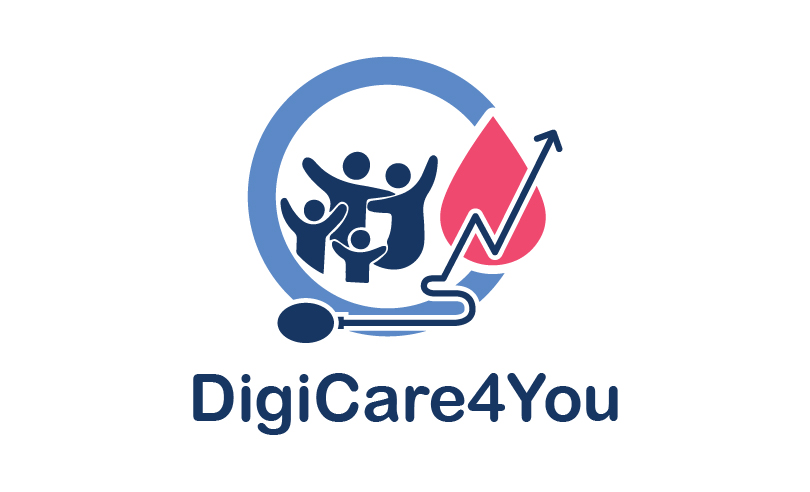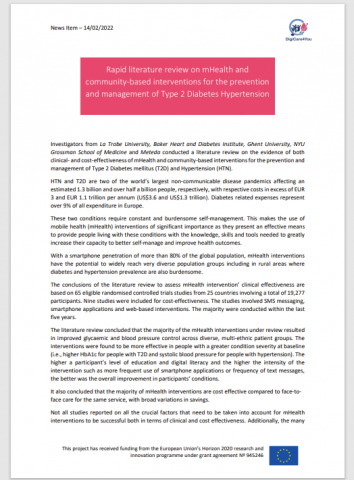Investigators from La Trobe University, Baker Heart and Diabetes Institute, Ghent University, NYU Grossman School of Medicine and Meteda conducted a literature review on the evidence of both clinical- and cost-effectiveness of mHealth and community-based interventions for the prevention and management of Type 2 Diabetes mellitus (T2D) and Hypertension (HTN).
HTN and T2D are two of the world’s largest non-communicable disease pandemics affecting an estimated 1.3 billion and over half a billion people, respectively, with respective costs in excess of EUR 3 and EUR 1.1 trillion per annum (US$3.6 and US$1.3 trillion). Diabetes related expenses represent over 9% of all expenditure in Europe.
These two conditions require constant and burdensome self-management. This makes the use of mobile health (mHealth) interventions of significant importance as they present an effective means to provide people living with these conditions with the knowledge, skills and tools needed to greatly increase their capacity to better self-manage and improve health outcomes.
With a smartphone penetration of more than 80% of the global population, mHealth interventions have the potential to widely reach very diverse population groups including in rural areas where diabetes and hypertension prevalence are also burdensome.
The conclusions of the literature review to assess mHealth intervention’ clinical effectiveness are based on 65 eligible randomised controlled trials studies from 25 countries involving a total of 19,277 participants. Nine studies were included for cost-effectiveness. The studies involved SMS messaging, smartphone applications and web-based interventions. The majority were conducted within the last five years.
The literature review concluded that the majority of the mHealth interventions under review resulted in improved glycaemic and blood pressure control across diverse, multi-ethnic patient groups. The interventions were found to be more effective in people with a greater condition severity at baseline (i.e., higher HbA1c for people with T2D and systolic blood pressure for people with hypertension). The higher a participant’s level of education and digital literacy and the higher the intensity of the intervention such as more frequent use of smartphone applications or frequency of text messages, the better was the overall improvement in participants’ conditions.
It also concluded that the majority of mHealth interventions are cost effective compared to face-toface care for the same service, with broad variations in savings.
Not all studies reported on all the crucial factors that need to be taken into account for mHealth interventions to be successful both in terms of clinical and cost effectiveness. Additionally, the many complex variables that are hard to account for resulted in discrepant results which calls for more studies on mHealth interventions.
What this means for the Digicare4You project is that new DigiCare4You solutions will have to explore factors such as the optimal dose, frequency, timing, user interface, and communication mode to further improve its effectiveness but also to increase the feasibility and adherence of treatments to ensure sustainability. The DigiCare4You project will also have to balance its intervention carefully and take into consideration many of the moderating variables mentioned in the review especially the crucial trade-off between more intervention features which improve overall clinical effectiveness and too intensive an intervention which may have a detrimental impact on both participant retention and cost-effectiveness.
Available on PDF version here

